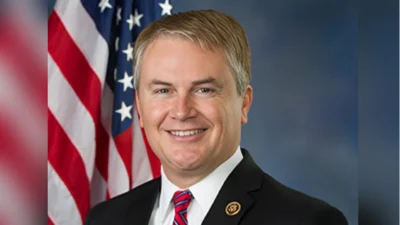Dear Commissioner Hamburg:
As senior members of the United States Senate and Chairman and Ranking Member of the Committee on Finance (Committee), we have a duty under the Constitution to conduct oversight into the actions of executive branch agencies, including the Food and Drug Administration (FDA). In this capacity, we must ensure that FDA properly fulfill their mission to advance the public’s welfare, safeguard the nation’s drug supply, and protect patients participating in clinical trials.
We recently released a report raising concerns about Avandia, a diabetes drug made by GlaxoSmithKline (GSK). We began this inquiry after the New England Journal of Medicine published a study in May 2007 warning of the possible cardiovascular risk of Avandia. Our report was based on a review of hundreds of thousands of pages of internal GSK documents and concluded:
The totality of evidence suggests that GSK was aware of the possible cardiac risks associated with Avandia years before such evidence became public.… Based on this knowledge, GSK had a duty to sufficiently warn patients and the FDA of its concerns in a timely manner. Instead, GSK executives intimidated independent physicians, focused on strategies to minimize findings that Avandia may increase cardiovascular risk, and sought ways to downplay findings that the rival drug ACTOS (pioglitazone) might reduce cardiovascular risk.
In 2007, the FDA asked GSK to perform a cardiovascular safety trial, called TIDE (Thiazolidinedione Intervention With Vitamin D Evaluation), to compare Avandia to other diabetes treatments such as ACTOS (piolglitazone). According to clinicaltrials.gov, the TIDE trial is currently recruiting patients. [ATTACHMENT A]
In response to several document requests made to the FDA, we received and reviewed an analysis conducted by two FDA safety officials. It is our understanding that this analysis, conducted in October 2008, reviewed all available studies comparing rosiglitazone (Avandia) to pioglitazone (ACTOS). The analysis by these FDA officials raise some alarms. For instance, they wrote:
[T]here is no evidence that rosiglitazone confers any unique health benefits over pioglitazone while there is strong evidence that rosiglitazone confers an increased risk of [heart attacks] and heart failure compared to pioglitazone. [ATTACHMENT B]
Even more alarming, they concluded that “any proposed head-to-head trial of rosiglitazone vs. pioglitazone would be unethical and exploitative."
Two days after releasing this analysis, one of these same safety officers reviewed the protocol for the TIDE trial. This safety officer wrote that because of cardiovascular concerns with Avandia “the safety of the study itself cannot be assured, and is not acceptable." [Attachment C]
After reading these documents, we would like to know what steps the FDA has taken to protect patients in the TIDE trial, and why this trial is allowed to continue. We would also like to know if the Office for Human Research Protection (OHRP) was notified about the safety concerns of the TIDE trial identified by the FDA. Further, we were alarmed to learn that the warnings from these safety officers do not appear to be addressed in the consent form that was handed out to patients that were enrolled in the study. [Attachment D]
We look forward to hearing from you by no later than March 4, 2010.
Sincerely,
Max Baucus Chairman
Chuck Grassley Ranking Member
Source: Ranking Member’s News









